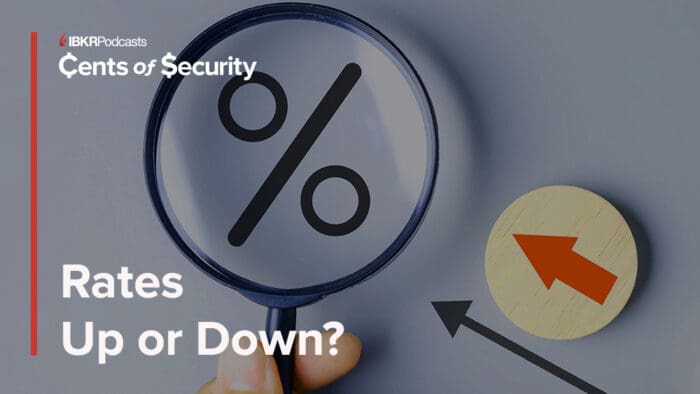The article “Insider Trading Increases Market Efficiency” was originally posted on Alpha Architect Blog
The empirical research (for example, here, here, here and here) on insider trading demonstrates that insider transactions have significant predictive power for future stock returns as they reveal helpful information that may affect the price of stocks. George Jiang and Yun Ma contribute to the literature with their November 2023 study, “Does Insider Trading Correct Mispricing?” which examined whether insider trades contained information about future firm fundamentals for mispriced stocks and the extent to which insider trades incorporated future fundamental information into stock prices— insiders can benefit by providing more information as to future firm fundamentals or by identifying market mispricing.
Their analysis used mispricing variables previously identified in the literature about misvaluation factors: initial public offerings, seasoned equity offerings, debt offerings, equity repurchase, and debt repurchase. They used the information to identify and create three firm characteristics portfolios based on the above variables: underpriced, overpriced, and neutral firms. They then used an additional mispricing identifier for a robustness check, the five-year composite share issuance (CSI).
“The CSI measure is designed to capture information regarding managers’ decisions to issue or repurchase equity that may be influenced by persistent mispricing in the market. It is found that the composite share issuance variable exhibits a significant negative correlation with future returns.”
To sharpen their analysis, they excluded pre-scheduled (routine) insider trades which have been shown to be less informed by stock valuation.
Their data sample covered the period 1986-2020, 2,433,573 insider sell transactions, and 768,498 insider buy transactions. Following is a summary of their key findings:
- While insider trades did not fully capture the information content of future firm cash flows, overall, there was significant positive relationships between net insider purchase activities and future firm performance—insiders purchase more and sell less when the firm performs better in the next quarter or next year, indicating that insiders possess superior information about firm fundamentals.
- Insider transactions contained more long-term future fundamental information mainly for over-valued stocks—they could not conclude that insider transactions carried more fundamental information for undervalued stocks.
- After controlling for the mispricing effect, insider trading activities still predicted future return performance, indicating insider transactions contained more information content than just stocks’ misvaluation. However, only opportunistic/non-preplanned transactions reliably forecasted future returns performance, facilitating the correction of mispricing.
- Overpriced stocks had negative relations with the future return performance over both short- and long horizons.
- At the one-year horizon only, underpriced stocks had positive relations with future return performance—the recognition of overpriced stocks drives the insider transactions for both short and long-term, and the recognition of underpriced stocks drives the insider transactions for long-time horizon. In other words, insider trading activities correct mispricing by purchasing undervalued stocks over the long-term and selling overvalued stocks over the short and long-term.
- Low CSI had a positive and significant relationship with future returns, while high CSI had a negative and significant relationship with future returns. And, based on the CSI indicator, underpriced stocks had stronger positive relations with the future return performance for all horizons.
Their findings led Jiang and Ma to conclude:
“Our findings support the hypothesis that insider trading can improve stock price efficiency and promote stock price discovery. However, we found that this effect is significant only for overvalued stocks over [the] short-term and undervalued stocks over [the] long-term. These results suggest that the market incorporates insider trading information into the prices of overvalued stocks in the short-term and undervalued stocks in the long-term. Furthermore, our study shows that insider transactions carry more long-term future firm fundamental information for overvalued stocks. Despite these findings, insider trading activities only incorporate a small fraction of future firm fundamentals into future stock prices. Therefore, a significant portion of fundamental information remains unexplained by insider transactions.”
Investor Takeaways
The empirical research demonstrates that overall insider trades provide information as to future stock returns— the effect is significant mainly for overvalued stocks over the short-term, and undervalued stocks over long-term. In doing so they help to correct mispricing, making the market more efficient. However, it is important to note that it is only the non-preplanned and opportunistic insider transactions that help correct mispricing and promote stock price discovery—the preplanned trades are indicative of executives diversifying their portfolios. The publication of these findings also helps to make the market more efficient as investors incorporate the findings into their investment strategies. Another example of “The Incredible Shrinking Alpha.”
Larry Swedroe is the author or co-author of 18 books on investing, including his latest Enrich Your Future.
Disclosure: Alpha Architect
The views and opinions expressed herein are those of the author and do not necessarily reflect the views of Alpha Architect, its affiliates or its employees. Our full disclosures are available here. Definitions of common statistics used in our analysis are available here (towards the bottom).
This site provides NO information on our value ETFs or our momentum ETFs. Please refer to this site.
Disclosure: Interactive Brokers Third Party
Information posted on IBKR Campus that is provided by third-parties does NOT constitute a recommendation that you should contract for the services of that third party. Third-party participants who contribute to IBKR Campus are independent of Interactive Brokers and Interactive Brokers does not make any representations or warranties concerning the services offered, their past or future performance, or the accuracy of the information provided by the third party. Past performance is no guarantee of future results.
This material is from Alpha Architect and is being posted with its permission. The views expressed in this material are solely those of the author and/or Alpha Architect and Interactive Brokers is not endorsing or recommending any investment or trading discussed in the material. This material is not and should not be construed as an offer to buy or sell any security. It should not be construed as research or investment advice or a recommendation to buy, sell or hold any security or commodity. This material does not and is not intended to take into account the particular financial conditions, investment objectives or requirements of individual customers. Before acting on this material, you should consider whether it is suitable for your particular circumstances and, as necessary, seek professional advice.














Join The Conversation
For specific platform feedback and suggestions, please submit it directly to our team using these instructions.
If you have an account-specific question or concern, please reach out to Client Services.
We encourage you to look through our FAQs before posting. Your question may already be covered!